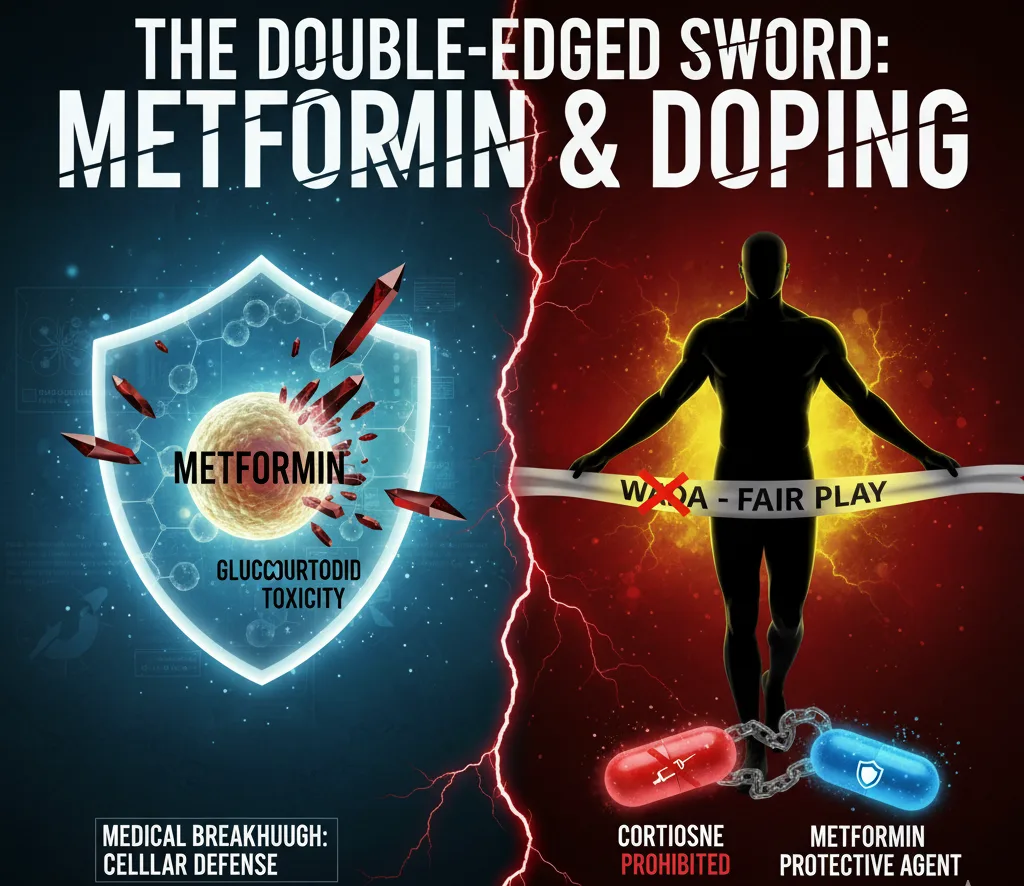New research highlights the potential of an existing drug to mitigate the harmful effects of corticosteroids, a development with significant implications for both medical practice and anti-doping regulations.
A recent Randomized Controlled Trial published in Diabetes Care. 2025 reveals that short-term metformin use can protect healthy individuals from glucocorticoid-induced toxicity. The study, titled "Short-term Metformin Protects Against Glucocorticoid-Induced Toxicity in Healthy Individuals: A Randomized, Double-Blind, Placebo-Controlled Trial" by Susanne Thierry et al., suggests a promising avenue for reducing the adverse effects associated with corticosteroid treatments.
Glucocorticoids, commonly referred to as corticosteroids or "cortisone," are a class of steroid hormones widely used in medicine for their potent anti-inflammatory and immunosuppressive properties. They are vital in treating conditions such as asthma, allergies, autoimmune diseases, and certain cancers. However, their use, particularly long-term or at high doses, is associated with a range of side effects, including increased blood sugar levels, bone density loss, muscle weakness, and impaired immune function.
The findings that metformin, a drug primarily used to treat type 2 diabetes by improving insulin sensitivity, can offer protection against these toxicities are particularly noteworthy. This could potentially lead to strategies that allow patients to benefit from necessary glucocorticoid therapies while minimizing their unwanted complications.
The Doping Dilemma
Beyond its medical implications, the study also brings into focus the controversial use of glucocorticoids in sports. As highlighted in a commentary accompanying the original finding, "Glucocorticoids are among the prohibited substances by WADA (World Anti-Doping Agency)."
Athletes have historically misused glucocorticoids for their potential to reduce pain and inflammation, aid recovery, and even enhance performance by masking injuries. While they are permissible under strict medical exemptions (Therapeutic Use Exemptions - TUEs), their general use in competition is banned due to their performance-enhancing potential and health risks.
The intersection of these findings presents a complex scenario:
-
Medical Benefit: Metformin could make glucocorticoid treatment safer for patients needing it.
-
Anti-Doping Challenge: If metformin becomes widely used to counteract glucocorticoid side effects, it could theoretically make the detection and regulation of illicit glucocorticoid use in sports even more complicated. The presence of metformin might offer a "protective shield" that potentially allows athletes to push boundaries, albeit with significant ethical and health considerations.
Further research will undoubtedly explore the mechanisms behind metformin's protective effects and its full clinical potential. In the meantime, this study reinforces the ongoing challenge for anti-doping authorities to keep pace with medical advancements and potential misuses of therapeutic agents in competitive sports.

